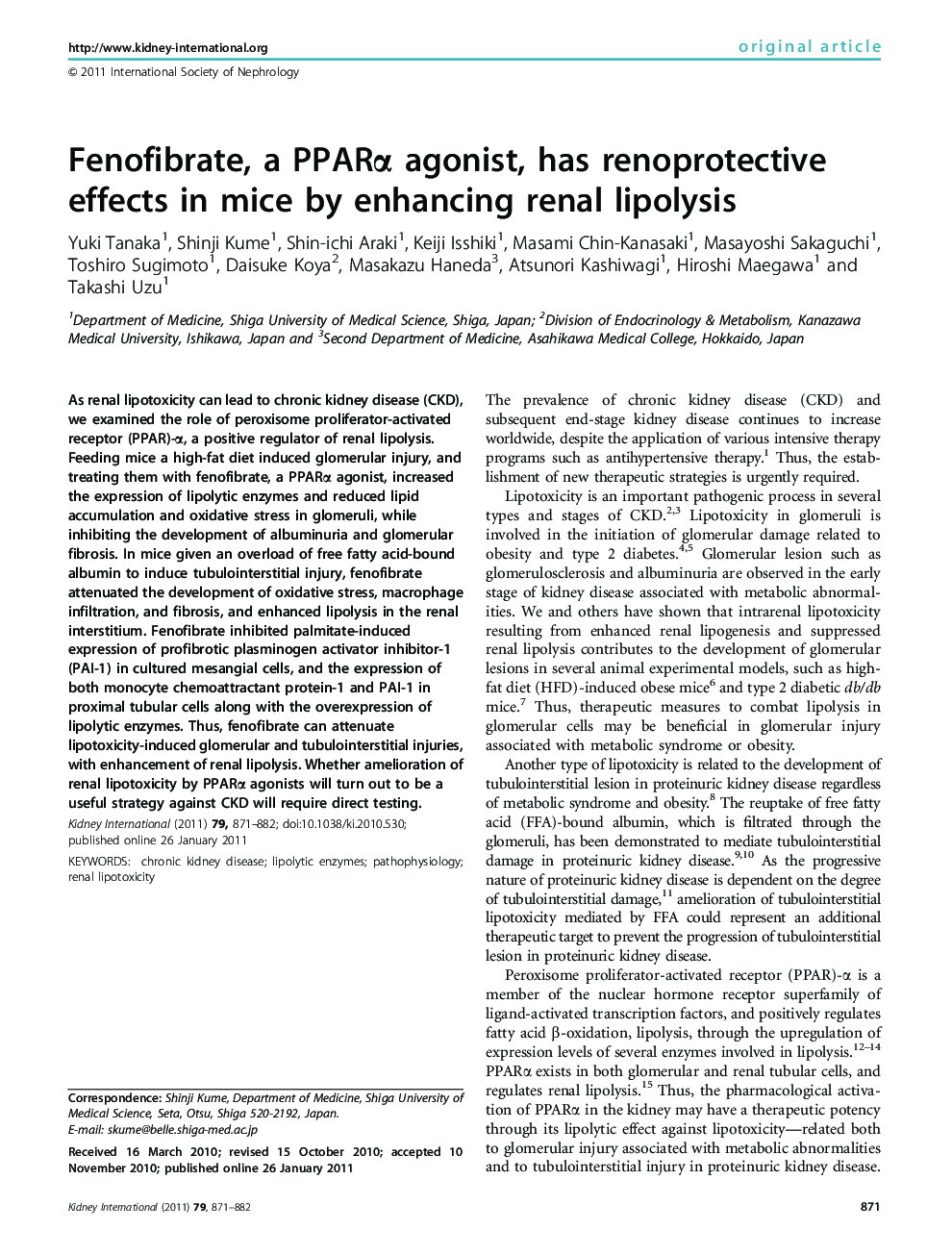| Article ID | Journal | Published Year | Pages | File Type |
|---|---|---|---|---|
| 3886441 | Kidney International | 2011 | 12 Pages |
As renal lipotoxicity can lead to chronic kidney disease (CKD), we examined the role of peroxisome proliferator-activated receptor (PPAR)-α, a positive regulator of renal lipolysis. Feeding mice a high-fat diet induced glomerular injury, and treating them with fenofibrate, a PPARα agonist, increased the expression of lipolytic enzymes and reduced lipid accumulation and oxidative stress in glomeruli, while inhibiting the development of albuminuria and glomerular fibrosis. In mice given an overload of free fatty acid-bound albumin to induce tubulointerstitial injury, fenofibrate attenuated the development of oxidative stress, macrophage infiltration, and fibrosis, and enhanced lipolysis in the renal interstitium. Fenofibrate inhibited palmitate-induced expression of profibrotic plasminogen activator inhibitor-1 (PAI-1) in cultured mesangial cells, and the expression of both monocyte chemoattractant protein-1 and PAI-1 in proximal tubular cells along with the overexpression of lipolytic enzymes. Thus, fenofibrate can attenuate lipotoxicity-induced glomerular and tubulointerstitial injuries, with enhancement of renal lipolysis. Whether amelioration of renal lipotoxicity by PPARα agonists will turn out to be a useful strategy against CKD will require direct testing.
